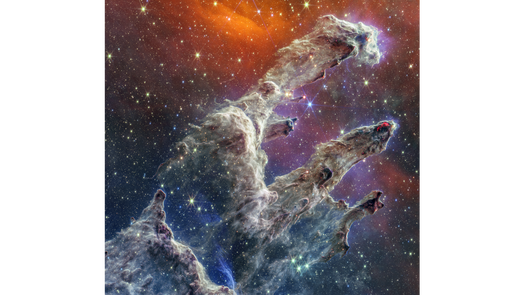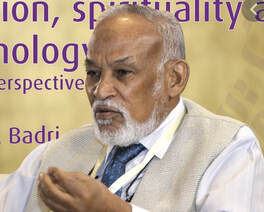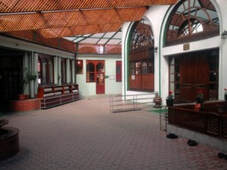|
Britanski autor pakistanskog porjekla, Ziaudin Sardar, drži da mi trenutno živimo u post-normalnim vremenima kada skoro ništa nije više kako je bilo. Sve što je vezano za predstojeće predsjedničke izbore u SAD potvrđuje tu njegovu tvrdnju. Od starosne dobi kandidata, pa preko činjenice da je jedan od njih nedavno osuđen za kriminalna djela, sve do samog rasporeda predsjedničkih debata nam dodatno dokazuje da je post-normalno sada postalo normalno. Iako predsjedničke debate same po sebi ne presuđuju izbore, one stvaraju momente na koje se kandidati i komentatori često pozivaju kako bi potvrdili svoju kandidaturu, odnosno osporili svoga protivnika. Predstojeća debata, 27. juna 2024. (ili u rano jutro 28. juna 2024. po centralnoevropskom vremenu), će nam dati dobre pokazatelje daljnjeg odvijanja kampanja dvojice kandidata iz dominantnih političkih stranaka, Demokrata i Republikanaca. Iako manje izgledno, debata ima potencijal da promijeni i sam proces odlučivanja unutar dvije glavne stranke po pitanju nominacije njihovog kandidata.
0 Comments
7. maj je Dan džamija u Bosni i Hercegovini. Na današnji dan 1993. godine, Vojska Republike Srpske srušila je čuvenu prelijepu Ferhadiju (Ferhat-pašinu) džamiju u centru Banje Luke, koja je tu stajala od 1579. godine. Ona je bila uvrštena kao UNESCO-va zaštićena baština. 2001. godine, na svečanosti povodom početka obnove džamije, rulja od nekoliko hiljada bosanskih Srba napala je oko 300 ljudi koji su se okupili da polažu kamen temeljac. Mnogo ljudi je povrijeđeno. Jedan od vjernika, Murat Badić, pogođen je kamenom i kasnije je preminuo u bolnici. Za njegovo ubistvo do danas niko nije procesuiran. On je posljednji čovjek kamenovan na smrt u Evropi.
May 7th is the Day of the Mosques in Bosnia and Herzegovina. On this day in 1993, the Republika Srpska Army (the army of the Bosnian Serbs) destroyed the famous beautiful Ferhadija (Ferhat Pasha) Mosque in the center of Banja Luka, which stood there since 1579. At the time of its destruction, it was listed as UNESCO's protected heritage. In 2001, during the ceremony marking the beginning of the mosque's reconstruction, a mob of a few thousand Bosnian Serbs attacked about 300 people who gathered to lay the cornerstone. Many people were injured. One of the congregants, Murat Badić, was hit by a rock and later died in a hospital. Until today no one has been prosecuted for his murder. He is the last man stoned to death in Europe.
Photo courtesy of NASA Dok sam odrastao, bio sam fasciniran ogromnim brojem zvijezda koje sam mogao vidjeti na nebeskom svodu. U tom pogledu, ne mislim da sam bio jedinstven. To je bilo vrijeme kada je nebo bilo naš ekran. Zvijezde su bile aplikacije. Moj prijatelj i ja bismo gledali očaravajuću sliku noćnog neba, razgovarali o mogućnosti međuzvjezdanog putovanja, vanzemaljskim svjetovima i – prije svega – šta sve to znači. Noćno nebo nad mojim zavičajem u Jablanici bilo je posebno očaravajuće ljeti, kada su duge šetnje, večernje ljenčarenje i ljetni raspusti pojačavali našu mladalačku nevinost.
Ovu sam pjesmu ispjevao nakon što sam pročitao pjesmu profesora Ferida Muhića, "Bio sam u Bosni". Ista me se toliko dojmila da su mi, kao reakcija na nju, riječi same počele dolaziti. Htio sam da ih zapišem dok mi nisu nestale. Za nekoliko minuta sam je uspio zapisati u formi u kojoj je sada, uz minimalne prepravke. Nakon što sam je podijelio sa nekoliko bliskih prijatelja, sada je vrijeme da je podijelim sa svima. Nadam se da ćete osjetiti onu lavinu emocija koju sam imao kada mi je dolazila, kao i kada je svaki put nanovo pročitam.
There have already been in the past few days quite a few messages, writeups, and videos dedicated to Dr. AbdulHamid AbuSulayman (1936-2021), one of the great contemporary Muslim scholars. Many will be speaking about his intellectual legacy, and rightly so. In this short essay, I want to focus on my interactions with Dr. AbdulHamid and the lessons I learned from them. His demise is a great loss for the Ummah. As he was someone I respected and loved a lot, this loss feels very personal. But his memory and work will stay with us and inspire us to continue the great legacy he left behind. May Allah have mercy on him and enter him into Jannah, while granting his family patience and perseverance.
For those wishing a good place to begin learning about Dr. AbdulHamid’s thought, I highly recommend the carefully curated and compiled selection from his major works (in Arabic), published by the Center for Islam in the Contemporary World at Shenandoah University in collaboration with al-Hadara Center in Cairo I wrote this blog post for the Berkley Center for Religion, Peace & World Affairs at Georgetown University, after the 2020 elections in Montenegro. The role of the Serbian Orthodox Church as an across-the-border non-state actor on the territory of former Yugoslavia is often destabilizing. During the 2020 Montenegro elections, the SOC contributed to the calls for violence against ethnic minorities, and it agitated against the pro-Western stance of the Montenegrin government.
READ THE BLOG HERE The Prophet's (SAW) companion, Ibn Abbas (RA), is reported to have asked: "Do you know what is the departure of knowledge?," and answered, "It's the death of the scholars." (Transmitted in Musnad Ahmad, with a sound chain)
Today, I am saddened by the report that our beloved teacher and scholar, Professor Malik Badri, passed away. May Allah grant him the highest degree in the Jannah, and give his family ample patience. We have lost an enormous amount of knowledge with his departure from this world. Ismet Bašić
Imam in Zenica, Bosnia and Herzegovina (A graduate of al-Azhar University in Cairo, Egypt) [The translator's note: This self-critical and introspective short essay, authored by a Bosnian Imam who graduated from al-Azhar University, caught my attention by its unique combination of self-reflection and a call to (in)action. This type of essay is common in Bosnian Islamic discourse. The essay was published in "Preporod" (Renewal), a Bosnian Islamic biweekly newspaper. It has recently celebrated its 50th anniversary and is currently edited by Senada Tahirović, the newspapers' first female editor. Preporod publishes news articles about the Muslim community in Bosnia and Herzegovina, essays and reflections by Bosnian scholars and Imams, translations of essays from various world languages, and many other interesting pieces. It's in the Bosnian language so its reach is limited to the former Yugoslavia. It's truly a remarkable publication, a testament to the vitality of Islam in Bosnia and Herzegovina and in Southeastern Europe. - ES] In the last several years, we are witnessing how the European media, from time to time, publish cartoons that instigate anger among the Muslim population. Very often, the timing of those cartoons coincides with the time when Muslims are preparing for welcoming the Islamic month of Rabi' al-Awwal, the month of the Prophet's SAW birth. The very timing of these publications, during the period when the Muslims remember their Prophet even more intensely and when they are trying to make his teachings and beauty closer to the people, give us the right to suspect that they are targeting the Muslim reaction, as if to say: "Look, such are the Muslims! This is their violent religion. This is what their prophet taught them." (Note: This essay was the first in the series I wrote for Al Jazeera Balkans in the Bosnian language on the 2020 US elections. I felt that the English reading audience might benefit from these essays. I did not have the time to translate them, so I employed Google Translate, which has grown remarkably accurate over time. I did have to fix the text in a number of places. Overall, I think it captures what I originally wrote in Bosnian. As it's a Google (and not human) translation, it retains the sentence structure as it is in the original, which does not always sound great in English. Obviously, had I written this in English or translated it myself, I would've changed the structure. As it were, and due to time constraints, I'm leaving the translation as is. I think it is still readable and understandable. If you, however, notice inaccuracies, hard-to-understand constructions, or errors, please feel free to email me, and I'll fix them. Happy reading! ES)
There is a famous anecdote from the early period of American history. The year is 1787, eleven years after the United States declared independence. One woman asked the famous Benjamin Franklin, as he left the hall where the constitutional congress was held to discuss the future American constitution, "What have you given us, a republic or a monarchy?" Franklin answered, "A republic, if you can keep it." |
Ermin SinanovićPolitical scientist. Islam scholar. Southeast Asia and the Balkans analyst. Archives
May 2023
Categories |




 RSS Feed
RSS Feed